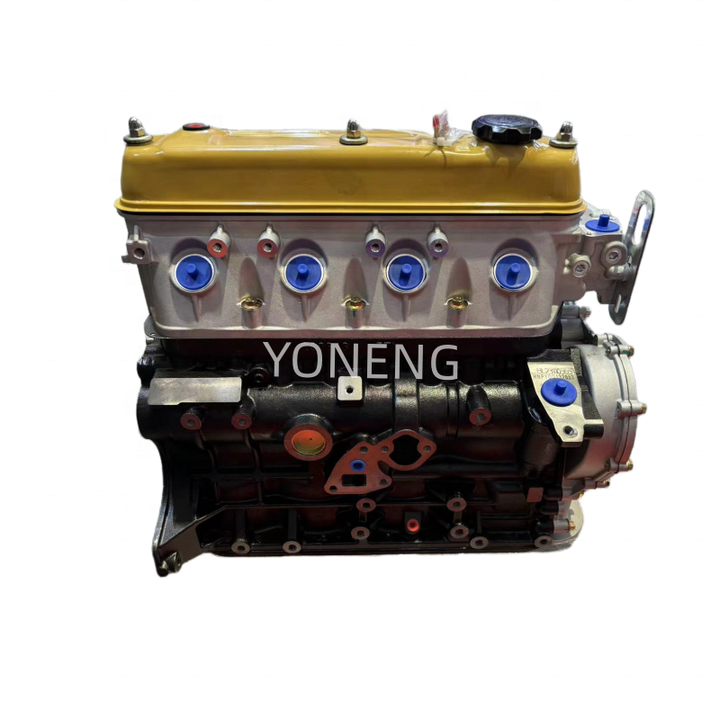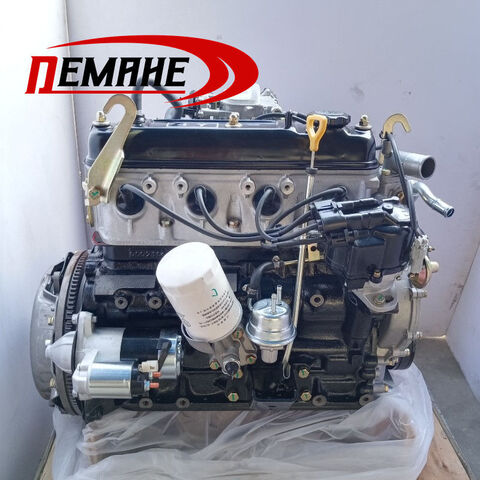Why the 4Y Engine Is a Top Choice for Reliable and Long-Lasting Performance
Why the 4Y Engine Is a Top Choice for Reliable and Long-Lasting Performance
Blog Article
Checking Out the Various Kinds Of Engine: Which One Fits Your Demands?
In the pursuit to determine the most suitable engine type for your details needs, it is critical to evaluate the distinct attributes and benefits of each option offered. Inner burning engines remain to control because of their integrity, while electrical engines are getting grip for their sustainability. Hybrid engines provide a functional compromise, and diesel engines stand out for their power popular applications. Additionally, alternative fuel engines present ingenious solutions, albeit with specific restrictions. Comprehending your concerns will certainly contribute in this decision-making procedure, causing an expedition of elements that might affect your choice.

Internal Combustion Engines
Internal burning engines (ICEs) are the foundation of modern transport, powering a huge variety of cars from cars to planes. These engines operate the concept of transforming gas into mechanical energy via a series of controlled explosions within a burning chamber. The most usual types of ICEs consist of gasoline engines, diesel motor, and rotary engines, each developed to satisfy certain performance and efficiency needs.
Fuel engines typically utilize spark ignition, while diesel engines count on compression ignition, causing distinctive differences in gas performance and power result (4y engine). Rotating engines, or Wankel engines, provide a portable style and smooth operation, but are much less typically utilized in mainstream applications
ICEs have undergone significant developments in technology, consisting of the intro of turbocharging and fuel shot systems, which improve overall performance and performance. Regardless of their performance renovations, ICEs encounter raising scrutiny due to their environmental impact, especially pertaining to greenhouse gas discharges.
Electric Engines
As worries about ecological sustainability and fossil fuel dependency expand, electric engines have become a compelling alternative to inner burning engines. These engines use electrical motors powered by batteries or fuel cells, supplying a cleaner and more efficient means of propulsion.
Among the key benefits of electrical engines is their lowered exhausts. Unlike typical engines that melt nonrenewable fuel sources, electric engines create absolutely no tailpipe discharges, substantially lowering air contamination and contributing to improved public health and wellness. Additionally, the performance of electrical motors often goes beyond that of interior burning engines, converting a greater proportion of energy from the power resource into useful energy for motion.
Electric engines are additionally noteworthy for their silent procedure, making them perfect for city environments. 4y engine. The simpleness of their design results in less moving components, which can cause minimized maintenance costs and boosted dependability with time
However, obstacles continue to be, including battery manufacturing influences, charging infrastructure, and variety constraints. Regardless of these hurdles, the expanding investment in electrical car innovation and renewable resource resources points towards an encouraging future for electrical engines, placed to play an important role in the change towards lasting transport.
Hybrid Engines
Mixing the benefits of both conventional and electrical interior combustion engines, hybrid engines represent a functional option in the mission for efficient and sustainable transport. These engines combine a gas or diesel motor with an electrical motor, enabling improved fuel performance and reduced discharges compared to traditional vehicles.
Crossbreed engines run in a number of modes, using the electric motor for low-speed driving and the inner combustion engine for higher rates or when more power is needed. This dynamic operation not only improves gas economic climate however also adds to a smoother driving experience. Regenerative stopping is one more important attribute, capturing energy usually lost throughout stopping and rerouting it to charge the battery.

As customers progressively focus on eco-friendliness, hybrid engines attract attention as a sensible choice, offering a reliable balance of performance, efficiency, and environmental responsibility. This flexibility makes them ideal for urban commuting and long-distance traveling alike.
Diesel Motor
Performance and power are hallmarks of diesel motor, which have long been favored for their effectiveness and fuel economic climate. These engines operate on the principle of compression ignition, where air is pressed to a heat prior to fuel is infused, sparking it without the need for trigger plugs. This procedure allows diesel engines to accomplish greater thermal efficiency contrasted to gas engines, translating into better gas gas mileage and lower carbon dioxide emissions.
Diesel engines are especially well-suited for durable applications such as vehicles, buses, and industrial machinery, where torque and durability are paramount. Their design generally consists of more powerful components to endure the greater pressures generated throughout operation, leading to longer solution life and lowered upkeep expenses.

Different Fuel Engines
While diesel engines have long dominated the landscape of heavy-duty power sources, alternative fuel engines are getting traction as feasible alternatives for a much more lasting future. These engines utilize a variety of fuels, such as compressed gas (CNG), lp, ethanol, and hydrogen, intending to decrease greenhouse gas exhausts and dependence on nonrenewable fuel sources.
One significant advantage of different fuel engines is their prospective to reduced carbon footprints. For example, CNG engines discharge less contaminants contrasted to standard diesel motor, making them appropriate for urban transportation systems and fleets seeking to improve air quality. Ethanol, stemmed from biomass, not just lowers discharges however likewise sustains farming economic situations.
Hydrogen fuel cells represent an innovative growth in this realm, offering zero-emission power via a chemical response in between hydrogen and oxygen. Nevertheless, obstacles such as facilities growth and production expenses continue to be obstacles to prevalent fostering - 4y engine.
Verdict
Finally, choosing the proper engine kind necessitates cautious factor to consider of particular requirements and choices. Inner combustion engines provide integrity, while electrical engines focus on sustainability and minimized maintenance. Crossbreed engines incorporate look at this site the advantages of both, enhancing efficiency, whereas diesel motor supply premium power and torque for sturdy applications. Alternative fuel engines existing environment-friendly choices, albeit with possible framework difficulties. Eventually, a detailed analysis of driving habits and environmental values will facilitate a notified choice relating to engine option.
Crossbreed engines use a functional concession, and diesel engines stand out for their power in demanding applications. The most typical types of ICEs include fuel engines, diesel engines, and rotary engines, each designed to fulfill certain performance and efficiency requirements.
Unlike standard engines that burn fossil gas, electrical engines produce no tailpipe exhausts, significantly reducing air pollution and contributing to improved public wellness.Hybrid engines run in a number of this post settings, making use of the electric motor for low-speed driving and the interior burning engine for higher speeds or when even more power is needed. Crossbreed engines integrate the advantages of both, boosting efficiency, whereas diesel engines give exceptional power and torque for sturdy applications.
Report this page